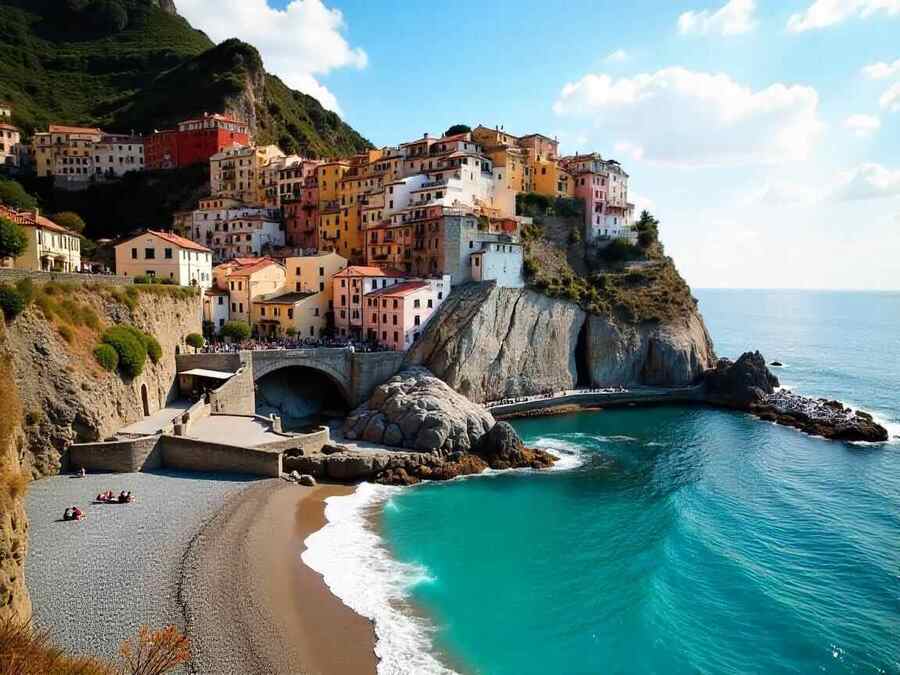Home » Austria Travel News » France, Italy, Austria, New Zealand, Japan, Indonesia and Bhutan Reveal the Crucial Role of Tourist Taxes in Maintaining Popular Destinations and Supporting Local Communities
Published on
August 24, 2025
France, Italy, Austria, New Zealand, Japan, Indonesia, and Bhutan have all recognized the growing pressures of mass tourism on their iconic destinations and local communities. In response, these countries have implemented tourist taxes that play a crucial role in maintaining the appeal of these popular locations. These taxes not only help protect historical landmarks, preserve natural beauty, and improve infrastructure, but also ensure that local communities benefit directly from the influx of tourists. By reinvesting the funds into sustainable tourism practices, these nations are safeguarding their cultural heritage, enhancing the visitor experience, and supporting the livelihoods of local residents, making tourism a positive force for both the environment and the economy.
France: Stay Tax (Taxe de Séjour)
In France, travelers pay a stay tax, which is determined by the type of accommodation and the location. The amount ranges from EUR 0.65 per night for budget accommodations to over EUR 15 per night for luxury hotels. The funds generated are used to improve tourism-related facilities, ensuring a premium experience for visitors while supporting the maintenance of the destination’s infrastructure.
Indonesia: Bali’s New Tourist Tax
In a bid to preserve its cultural heritage and natural landscapes, Bali introduced a tourist tax on February 14, 2024. Each traveler now pays a one-time fee of 150,000 Indonesian rupiah upon arrival. This revenue goes towards the conservation of Bali’s unique environment and supports sustainable tourism practices to maintain its appeal in the long term.
Austria: Regional Tourism Tax (Ortstaxe)
Austria’s tourism tax, known as the Ortstaxe, differs by region. In cities like Vienna, guests are charged 3.2% of the total accommodation cost, whereas in other areas, the fee is generally between EUR 0.15 to EUR 3 per night. The money collected is allocated to improving local tourism services and enhancing infrastructure across the country.
New Zealand: Visitor Conservation Levy
New Zealand charges an International Visitor Conservation and Tourism Levy (IVL) when travelers apply for an Electronic Travel Authority (eTA) or visa. The tax ranges from NZD 35 to NZD 100 and is used to fund environmental protection efforts and maintain tourism infrastructure, ensuring that New Zealand remains an attractive destination for visitors while preserving its natural beauty.
Bhutan: Sustainable Development Fee
Bhutan’s tourism model focuses on high-value, low-impact visits. As part of this approach, tourists are required to pay a Sustainable Development Fee of USD 100 per person per day. This significant charge supports the conservation of Bhutan’s environment and cultural heritage, ensuring that tourism does not overburden the country’s resources while benefiting local communities.
Italy: Tourist Stay Tax (Tassa di Soggiorno)
Italy implements a tourist stay tax, known as tassa di soggiorno, with rates varying depending on the city and type of accommodation. In cities like Rome, the tax can range from EUR 1 to EUR 5 per night, while in Venice, an additional fee is charged for day-trippers. The funds raised are used for the upkeep of infrastructure, the protection of historical sites, and to manage the impacts of large tourist numbers.
Japan: Departure Tax (Sayonara Tax)
Japan imposes a departure tax of 1,000 yen on all travelers leaving the country. The collected funds go towards enhancing tourism infrastructure, improving airport services, and supporting projects that benefit both locals and visitors.
France, Italy, Austria, New Zealand, Japan, Indonesia, and Bhutan use tourist taxes to protect popular destinations, preserve cultural heritage, improve infrastructure, and support local communities, ensuring sustainable tourism that benefits both visitors and residents.
These taxes play an essential role in the preservation of popular tourist destinations. They help generate the resources needed to maintain infrastructure, protect local cultures, and ensure that tourism can continue to thrive sustainably. Whether through environmental protection, cultural preservation, or infrastructure development, tourist taxes are increasingly being recognized as a key component in shaping the future of global tourism.
